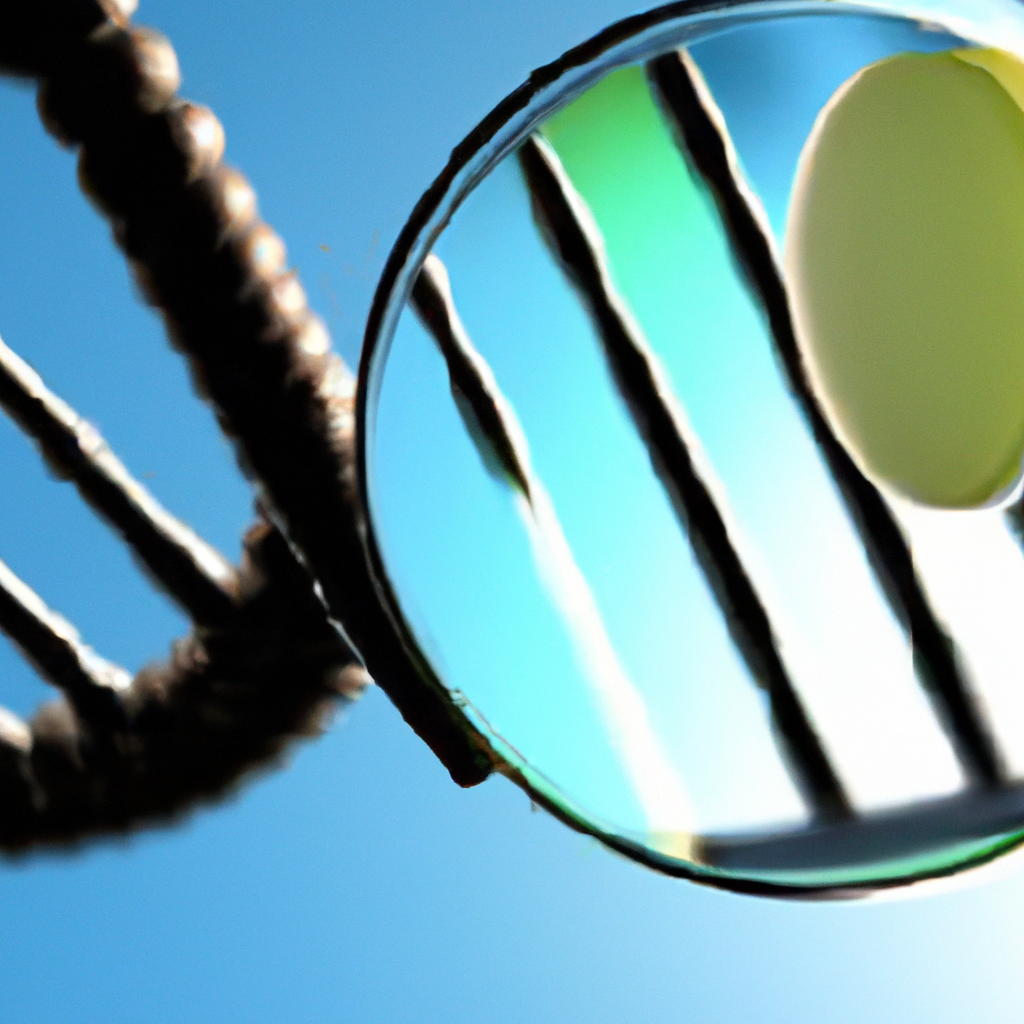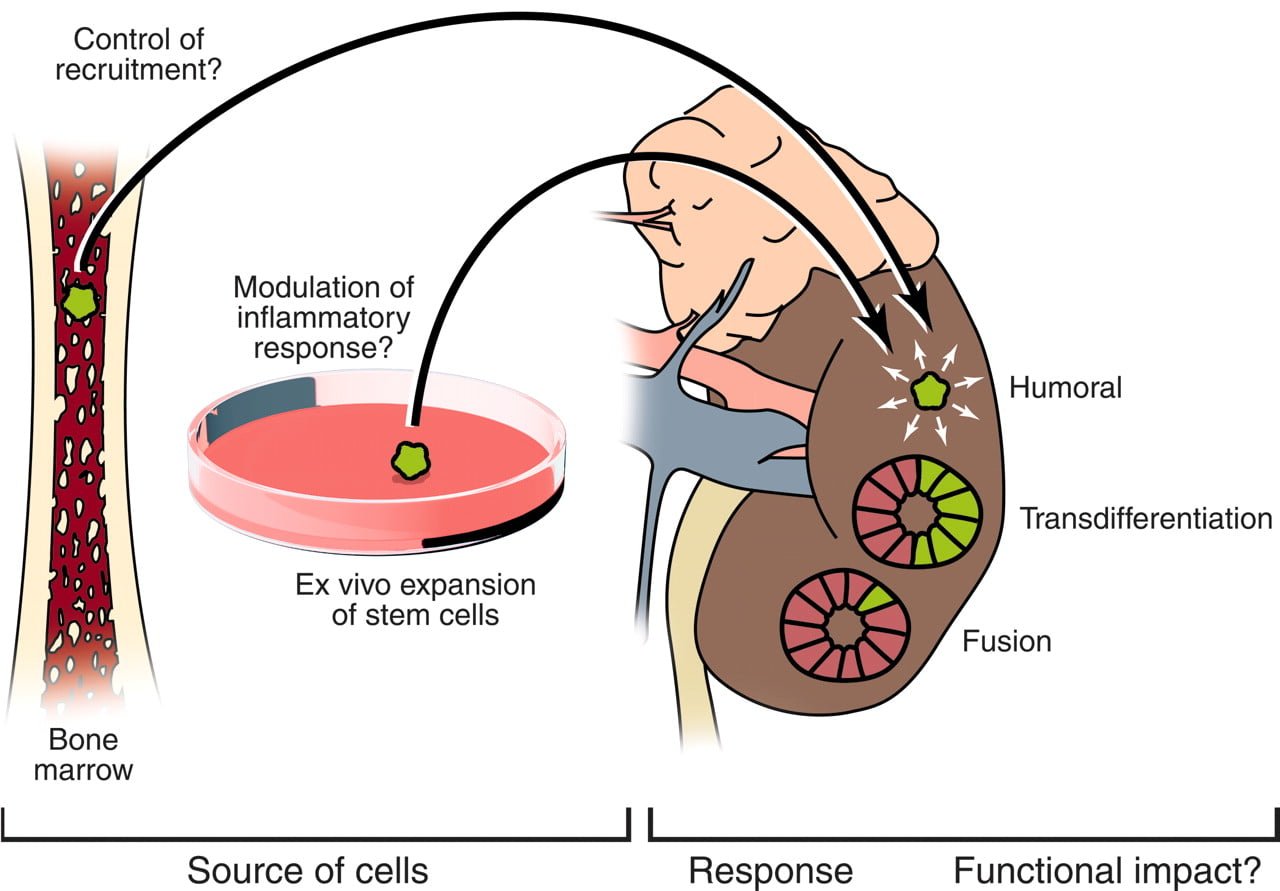Imagine a world where medical treatments can be customized to suit each individual’s needs, where diseases once thought incurable can be treated effectively, and where the potential for regenerating damaged tissues and organs is within reach. This is the promise of stem cell research, and Malaysia is at the forefront of this groundbreaking field. However, with every scientific advancement comes ethical considerations that must be carefully addressed. In this article, we will explore the ethical implications of stem cell banking in Malaysia, examining the questions and dilemmas that arise as we unlock the incredible potential of this cutting-edge technology. Get ready to delve into a thought-provoking journey where science and ethics intersect, as we navigate the complex landscape of stem cell research in Malaysia.

Embryonic Stem Cell Research
Embryonic stem cell research involves the study and utilization of stem cells derived from human embryos. These cells have the potential to develop into any type of cell in the human body, making them crucial in medical research and regenerative medicine. However, the use of embryonic stem cells raises several ethical concerns.
Origins and Sources of Embryonic Stem Cells
Embryonic stem cells are typically obtained from surplus embryos created for in vitro fertilization (IVF) procedures. These embryos are donated by individuals who have undergone IVF treatments and have given their informed consent for research purposes. Additionally, embryos that have been specifically created for research purposes may also be used, following ethical guidelines.
Ethical Concerns Surrounding the Use of Embryonic Stem Cells
The ethical concerns surrounding embryonic stem cell research primarily center around the status of the embryo and the potential destruction of human life. Some argue that embryos should be afforded the same rights and protections as born individuals, considering them to be human beings from the moment of conception. This perspective views the use of embryos in research as morally wrong.
On the other hand, proponents of embryonic stem cell research highlight the potential for significant medical advancements and the alleviation of human suffering that can result from this research. They argue that the benefits to society outweigh the moral concerns related to the use of embryos.
Laws and Regulations Regarding Embryonic Stem Cell Research in Malaysia
In Malaysia, the National Stem Cell Guidelines were established in 2009 to regulate the use of embryonic stem cells and other stem cell research. These guidelines outline the principles and criteria for the use of embryos in research, ensuring that ethical considerations are taken into account.
Under these guidelines, researchers must obtain approval from the National Stem Cell Ethics Committee before conducting any research involving embryonic stem cells. This approval process involves a thorough review of the research proposal, including the ethical considerations and justifications for using embryonic stem cells.
It is important to note that in Malaysia, the National Fatwa Council has issued a fatwa (religious ruling) stating that the use of embryonic stem cells from surplus IVF embryos is permissible as long as certain conditions are met. These conditions include obtaining informed consent from the donors and ensuring that the research is aimed at benefiting humanity without causing harm.
Adult Stem Cell Research
adult stem cells are found in various tissues and organs of the body, and they play a crucial role in tissue repair and regeneration. The use of adult stem cells in research and medical treatments presents its own set of ethical implications.
Characteristics and Sources of Adult Stem Cells
Unlike embryonic stem cells, adult stem cells are multipotent, meaning they have the ability to differentiate into a limited range of cell types specific to the tissue or organ from which they are derived. These cells can be found in bone marrow, adipose tissue, blood, and other organs.
Adult stem cells are typically obtained through minimally invasive procedures such as bone marrow aspiration or adipose tissue extraction. Donors undergo these procedures voluntarily and provide their informed consent for the collection of their stem cells.
Ethical Implications of Using Adult Stem Cells
One of the ethical implications of adult stem cell research is the potential for harm to the donor. Procedures involving the extraction of adult stem cells may carry risks such as infection or complications from anesthesia. Researchers and medical professionals have a responsibility to ensure the safety and well-being of donors, and informed consent plays a crucial role in this process.
Another ethical concern is the adequacy of informed consent. Donors must fully understand the nature of the research or treatment and the potential benefits and risks involved. It is essential that donors are provided with accurate and comprehensible information, allowing them to make informed decisions about their participation.
Legislation and Guidelines for Adult Stem Cell Research in Malaysia
In Malaysia, adult stem cell research is regulated under the same National Stem Cell Guidelines that govern embryonic stem cell research. These guidelines ensure that ethical considerations are taken into account when conducting research or medical treatments involving adult stem cells.
Researchers must obtain approval from the National Stem Cell Ethics Committee before conducting any research involving adult stem cells. The committee reviews the research proposal, ensuring that ethical guidelines are followed and informed consent is obtained from the donors.
It is crucial for researchers and healthcare professionals to adhere to these regulations and guidelines to ensure the ethical conduct of adult stem cell research in Malaysia.

Umbilical Cord Blood Stem Cell Banking
Umbilical cord blood stem cell banking involves the collection and preservation of stem cells from the umbilical cord and placenta after childbirth. This method provides a valuable source of stem cells that can be used in various medical treatments. However, there are ethical concerns associated with this practice.
Importance and Benefits of Umbilical Cord Blood Stem Cell Banking
Umbilical cord blood contains hematopoietic stem cells, which have the ability to differentiate into various types of blood cells. These cells have shown great promise in the treatment of various diseases, including certain types of cancer, blood disorders, and immune system disorders.
The main benefit of umbilical cord blood stem cell banking is that it provides a potential source of stem cells for the individual or their family members in the future. The stem cells can be used for transplantation, and their compatibility with the recipient is higher compared to stem cells from other sources.
Ethical Concerns Associated with Umbilical Cord Blood Banking
One ethical concern is the issue of informed consent. Parents must make the decision to bank their child’s umbilical cord blood before the birth of the baby. They should be well-informed about the process, the potential benefits, and limitations of cord blood banking. This ensures that parents can make an educated decision regarding the banking of umbilical cord blood.
Another concern is the equitable access and distribution of umbilical cord blood stem cell treatments. As the banking of umbilical cord blood involves a cost, there is a potential for disparity in access to these treatments based on socioeconomic factors. Efforts should be made to ensure that the benefits of cord blood banking are accessible to a wider population.
Regulations and Guidelines for Umbilical Cord Blood Banking in Malaysia
In Malaysia, the National Stem Cell Guidelines also cover the collection and preservation of umbilical cord blood stem cells. These guidelines outline the ethical considerations and regulations that must be followed by stem cell banking facilities.
The guidelines emphasize the importance of informed consent from parents or legal guardians before collecting and preserving umbilical cord blood. Parents should be provided with accurate and comprehensive information about the process, the potential benefits, and any associated costs.
Stem cell banking facilities are responsible for ensuring the proper storage and handling of umbilical cord blood samples. They should adhere to strict quality standards to maintain the viability and integrity of the stem cells.
Continued monitoring and oversight by regulatory bodies are essential to ensure the ethical practices of umbilical cord blood banking facilities in Malaysia.
Ethical Considerations in Stem Cell Therapies
Stem cell therapies offer immense potential for the treatment and management of various diseases and conditions. However, their use raises several ethical considerations that must be addressed to ensure the well-being and autonomy of patients.
Patient Consent and Autonomy
One of the fundamental principles of ethical healthcare is patient consent and autonomy. In the context of stem cell therapies, it is crucial that patients are fully informed about the nature of the treatment, potential risks and benefits, and available alternatives.
Patients should have the right to make an informed decision about whether to undergo a stem cell therapy or not. This decision should not be influenced by external pressures, and patients should have the freedom to choose or refuse the treatment based on their own values and beliefs.
Equitable Access and Distribution of Stem Cell Therapies
The equitable access and distribution of stem cell therapies is another ethical consideration. It is important to ensure that these therapies are accessible to a wide range of individuals, regardless of their socioeconomic status or geographical location.
Efforts should be made to address any potential disparities or inequities in access to stem cell therapies. This may involve the development of policies and programs that prioritize the allocation of resources to underserved populations or the establishment of financial assistance programs to support those who cannot afford the treatment.
Informed Decision-Making and Disclosure of Risks
Informed decision-making is a crucial aspect of ethical healthcare. Patients considering stem cell therapies should be provided with accurate and comprehensive information regarding the potential risks and benefits of the treatment.
Healthcare professionals have a responsibility to educate patients and ensure that they have a clear understanding of the potential outcomes, including any uncertainties or limitations associated with the treatment. This allows patients to make informed decisions and actively participate in their own care.
Balancing Public Interest and Commercial Interests
Stem cell therapies have the potential to generate significant commercial interest and investment. However, it is essential to strike a balance between the public interest and commercial interests.
Regulatory bodies and policymakers should ensure that the development and implementation of stem cell therapies are not solely driven by profit motives. The primary focus should be on promoting the safety, efficacy, and ethical conduct of these therapies, while also considering the affordability and accessibility for patients.

Privacy and Confidentiality
The collection, storage, and use of stem cells involve the handling of personal and genetic information. Protecting the privacy and confidentiality of individuals is crucial to maintaining trust and ethical practices in stem cell research and banking.
Protection of Personal and Genetic Information
Stem cell banking facilities and researchers have a responsibility to protect the personal and genetic information of individuals involved in stem cell research or banking. This includes strict adherence to data protection laws and regulations.
Access to personal and genetic information should be limited to authorized individuals and protected from unauthorized access, use, or disclosure. Measures such as encryption, secure data storage systems, and secure communication channels should be implemented to safeguard this sensitive information.
Consent and Authorization for Use of Stem Cells
Obtaining informed consent from individuals is vital before the use of their stored stem cells in research or medical treatments. This includes providing clear and comprehensible information about how the stem cells will be used, potential risks and benefits, and any associated costs.
Additionally, individuals should have the right to authorize or revoke the use of their stored stem cells at any time. Stem cell banking facilities should have appropriate processes in place to ensure that individuals have the autonomy to control the use of their stored stem cells.
Data Security and Privacy Policies
Stem cell banking facilities should have robust data security and privacy policies in place to protect personal and genetic information. These policies should address data storage, access controls, encryption, backup procedures, and disaster recovery plans.
Regular audits and assessments should be conducted to ensure compliance with data security and privacy standards. Facilities should also provide clear information to individuals about how their personal and genetic information is handled and protected.
Responsibilities of Stem Cell Banking Facilities
Stem cell banking facilities have a responsibility to uphold the highest standards of privacy and confidentiality. This includes training staff on privacy policies, ensuring secure data storage, implementing appropriate access controls, and regularly reviewing and updating data security measures.
Transparency and accountability are crucial in maintaining public trust and confidence in stem cell banking facilities. Facilities should communicate their privacy and confidentiality practices to individuals and respond promptly to any inquiries or concerns regarding the handling of personal and genetic information.
Religious and Cultural Perspectives
Religious and cultural beliefs can influence attitudes and perspectives on stem cell research and banking. It is essential to address these perspectives and concerns to ensure the ethical practice of stem cell banking in Malaysia.
Religious Views on Stem Cell Research and Banking
Different religious traditions have varying views on the use of stem cells for research and medical purposes. Some religious perspectives may emphasize the sanctity of life and consider the use of embryonic stem cells or manipulation of human embryos as morally wrong.
Engaging with religious leaders and organizations is crucial in understanding and addressing these concerns. It is important to foster dialogue and promote an understanding that encompasses both religious beliefs and the potential benefits of stem cell research and banking.
Cultural Beliefs and Practices Affecting Stem Cell Banking
Cultural beliefs and practices can also influence attitudes towards stem cell banking. Some cultures may have specific beliefs about the handling or utilization of biological materials, including umbilical cord blood or embryos.
Efforts should be made to respect and accommodate cultural beliefs while also providing accurate and comprehensive information about the potential benefits and limitations of stem cell banking. Cultural sensitivities should be taken into account when engaging with individuals and providing education and counseling on stem cell banking options.
Addressing Religious and Cultural Concerns in Malaysia
In Malaysia, a multi-religious and multicultural society, it is crucial to recognize and respect the diversity of religious and cultural perspectives on stem cell research and banking. This can be achieved through public engagement initiatives, educational programs, and collaborative efforts with religious and cultural leaders.
Open dialogue, mutual respect, and sensitivity to different perspectives are essential in fostering understanding and ensuring that the ethical considerations of stem cell research and banking reflect the values and beliefs of the Malaysian society.

Ethics Committees and Regulatory Bodies
The establishment of ethics committees and regulatory bodies plays a crucial role in overseeing and ensuring the ethical conduct of stem cell research and banking.
Role and Function of Ethics Committees
Ethics committees are responsible for reviewing and approving research proposals and protocols, ensuring that ethical considerations are taken into account. These committees typically consist of multidisciplinary experts and may also include representatives from relevant religious or cultural organizations.
The primary functions of ethics committees include assessing the scientific and ethical merit of research proposals, evaluating the potential risks and benefits, and ensuring the protection of participants’ rights and welfare. They also play a crucial role in monitoring ongoing research activities and addressing any ethical concerns that may arise.
National and International Regulatory Bodies
Regulatory bodies at the national and international levels are responsible for establishing guidelines, policies, and regulations that govern stem cell research and banking. These bodies play a pivotal role in ensuring that ethical standards are upheld and that research is conducted in a responsible and conscientious manner.
In Malaysia, the National Stem Cell Ethics Committee oversees the ethical aspects of stem cell research and banking, reviewing and approving research proposals. At the international level, organizations such as the International Society for Stem Cell Research (ISSCR) provide guidelines and standards for ethical conduct in stem cell research.
Monitoring and Oversight of Stem Cell Research and Banking
Continuous monitoring and oversight of stem cell research and banking are essential to ensure ethical practices. Regulatory bodies should conduct regular inspections and audits of stem cell banking facilities to assess compliance with ethical guidelines and quality standards.
Additionally, reporting mechanisms should be in place to encourage individuals to report any concerns or potential violations of ethical standards. Such mechanisms can help to identify and address any ethical issues promptly, fostering accountability and maintaining the integrity of stem cell research and banking.
Public Awareness and Education
Public awareness and education about stem cell research and banking are vital in fostering understanding, dispelling misconceptions, and addressing ethical concerns.
Importance of Educating the Public about Stem Cell Research and Banking
Stem cell research and banking are complex and rapidly evolving fields. Educating the public about these topics not only enhances understanding but also empowers individuals to make informed decisions regarding their own health and the potential use of stem cell therapies.
Educational initiatives should aim to provide accurate and accessible information about the science behind stem cell research, the different types of stem cells, and the potential applications and limitations of these therapies. This includes addressing common misconceptions and ensuring that the public has a realistic understanding of what stem cell research and banking can offer.
Addressing Misconceptions and Ethical Concerns
Public education efforts should specifically address common misconceptions and ethical concerns surrounding stem cell research and banking. This can be achieved through various channels, including public forums, informational websites, and educational materials distributed through healthcare facilities and community centers.
It is important to provide clear and accurate information about the ethical considerations involved in stem cell research and banking. This includes addressing concerns about the use of embryos, ensuring fairness in access to treatments, and protecting the privacy and autonomy of individuals involved in stem cell banking.
Collaboration with Healthcare Professionals and Institutions
Collaboration with healthcare professionals and institutions is crucial in disseminating accurate and up-to-date information about stem cell research and banking. Healthcare professionals can play a key role in educating and counseling individuals about the potential uses and limitations of stem cell therapies.
Incorporating stem cell research and banking into medical curricula and continuing education programs is also important. This equips healthcare professionals with the necessary knowledge and skills to engage in meaningful discussions with patients and address their questions and concerns.

Commercialization and Profit Motives
The commercialization of stem cell banking and the profit motives associated with it raise ethical challenges that need to be considered.
Ethical Challenges in Stem Cell Banking as a Business
Stem cell banking is a business that involves the collection, storage, and distribution of stem cells. As with any business, there are ethical challenges associated with profit motives and the potential for conflicts of interest.
One challenge is the potential for excessive marketing and promotion of stem cell banking services, which may create unrealistic expectations or exploit individuals’ fears and anxieties. It is essential for stem cell banking facilities to provide accurate and balanced information to individuals, ensuring that their decisions are based on realistic expectations and informed choices.
Conflict of Interest and Transparency
The potential for conflict of interest arises when stem cell banking facilities have financial interests that may influence their decision-making process. This can include promoting certain types of stem cell banking without sufficient scientific evidence or pressuring individuals to bank their stem cells unnecessarily.
To address these concerns, stem cell banking facilities should adhere to transparency guidelines and disclose any potential conflicts of interest. This includes providing clear information to individuals about the types of stem cell banking available, the scientific evidence supporting their use, and any financial relationships between the facility and third-party entities.
Regulation of Stem Cell Products and Services
Regulation of stem cell products and services is essential to ensure ethical practices and protect the public interest. Regulatory bodies should establish guidelines and quality standards for stem cell banking facilities, including requirements for informed consent, data security, and quality control.
Regular inspections and audits should be conducted to assess compliance with these guidelines and standards. Enforcement mechanisms should be in place to address violations and ensure that stem cell banking facilities adhere to ethical practices.
Future Ethical Considerations
As stem cell research and banking continue to evolve, future ethical considerations will arise. Several areas warrant attention to ensure the ethical conduct of evolving stem cell practices.
Emerging Technologies and Research
The emergence of new technologies and research methods in stem cell research poses questions about the ethical use of these advancements. For example, the use of gene editing techniques such as CRISPR/Cas9 raises concerns about the potential for indiscriminate genetic modifications and unintended consequences.
Ethical guidelines should be continuously reviewed and updated to address these emerging technologies and research methods. Ongoing dialogue and collaboration between researchers, ethicists, and regulatory bodies are essential to navigate these ethical considerations effectively.
Cross-border Stem Cell Banking Issues
Stem cell banking is not limited to a single country, and cross-border issues may arise regarding the ethical practices and regulatory frameworks of different jurisdictions. The movement of stem cell samples across borders raises questions about the harmonization of regulations and the equitable distribution of stem cell therapies.
International collaborations and agreements should be established to address these cross-border stem cell banking issues. This includes discussions on regulatory frameworks, data sharing, and the mutual recognition of ethical standards to ensure the harmonious and ethical development of stem cell practices on a global scale.
Ethical Guidelines for Evolving Stem Cell Practices
As stem cell research and banking continue to progress, it is crucial to develop and refine ethical guidelines to address emerging challenges and ensure responsible practices. Ethical considerations should be at the forefront of discussions and decision-making processes involving stem cell research and banking.
Stakeholders, including researchers, healthcare professionals, regulatory bodies, and ethicists, should collaborate to establish comprehensive and adaptable ethical guidelines. These guidelines should encompass the evolving landscape of stem cell practices and ensure the ethical conduct of research, clinical applications, and stem cell banking.
In conclusion, stem cell research and banking require careful consideration of various ethical concerns. By addressing these considerations and implementing appropriate guidelines and regulations, it is possible to ensure the ethical conduct of stem cell research and banking in Malaysia. This will facilitate the responsible application of stem cell therapies and the advancement of medical knowledge for the benefit of individuals and society as a whole.




